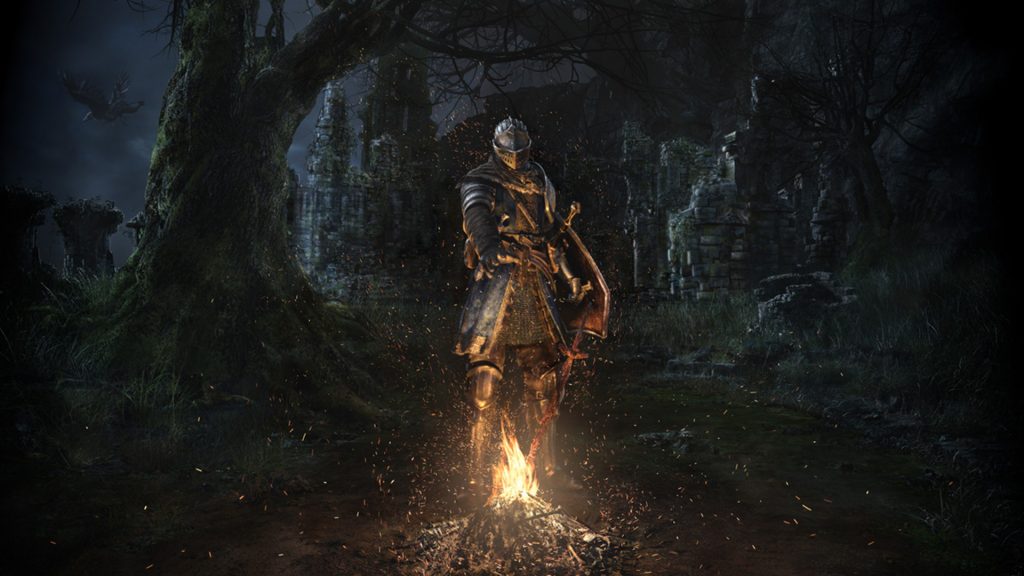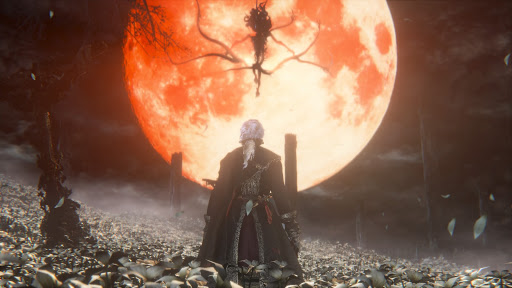By Mike O’Brien
Since the NES infiltrated households in the 80s, gaming has been assailed for its corrosive effects on our precious youth. In the aftermath of the Columbine High School massacre, journalists were all too keen to emphasise Eric Harris’ hobby of developing custom levels for DOOM, a graphic first-person shooter. When Anders Breivik murdered eight people in Oslo and another 69 in Ut├©ya, media commentators beelined to his manifesto’s mention of Call of Duty: Modern Warfare 2 as a ÔÇÿtraining simulation’. Influential platforms both conservative and liberal, from The Guardian to Donald Trump, have expediently sidestepped Harris’ anomic rage and Breivik’s traumatic upbringing to entertain the idea that video games spawn killers. For decades now, academic authorities have unambiguously put this myth to bed without supper.
But the tendency to view the relationship between mental health and video games in black and white is not exclusive to gaming’s critics. Confirmation bias doesn’t discriminate; just as video games can’t be condemned for unspeakable crimes, they can’t be lionized beyond reason by passionate advocates. For every Daily Mail dingbat decrying Dark Souls as catnip for deranged incels, there’s an /r/gaming crusader furiously championing the video game as benign and harmless recreation. The interplay between the game and the mind is powerful and multivariate, demanding far less reductive scrutiny than tossing one’s hat in the ring for either ÔÇÿharmless art’ or ÔÇÿpsychopath incubator’. I should know; my own experience with them is grey.

I suffer from bipolar disorder and ADHD. Leading a sustainable and satisfactory life is nigh on impossible without ruthless mental and physical discipline. During depressive episodes, especially under the influence of antipsychotics and tranquillizers, you will not find colour in your world. Before I was diagnosed, an episode crippled me to the point that I had to leave university without direction. It was a crushingly quiet day that I remember too well. My father and my girlfriend at the time helped me pack, and none of us said a word the whole morning. It was a silent three-hour drive to a home I loathed, entombed in the passenger seat of the car and my own chaos.
During this time, video games were my only respite. Had you asked me then, I might have fed you some claptrap about how they were the only thing getting me out of bed, and my only source of happiness. But this romantic vision neglects the other side, that gaming was an obstructive pit of fleeting purpose whose sweet bite was irresistible in bitter times. Some corners of the internet are quick to defend video games from any suggestion that, in dire circumstances, they can inflict more pain than relief. Those same people bare their fangs at social media companies for quantifying approval with likes and shares, creating a destructively addictive space that exploits the insecurities of hooked teens for advertising revenue. Funnily enough, this strategy is called ÔÇÿgamification’ for a reason: gaming is the godfather of drip-feeding progress. It may not be responsible for mass killings, but it’s ignorant and partisan to argue that its carefully architected flow of dopamine has no effect on vulnerable audiences who aren’t getting it elsewhere. Facebook ‘likes’ and your character’s ‘damage per second’ are merely numbers with a common goal: ensnaring your gaze.

For a long time, I was so depressed that I surrendered myself entirely to other lives in other worlds; anywhere but here sufficed. Eventually, at the height of my depression, I stumbled upon Bloodborne, a collision of Dickensian dread and Lovecraftian horror set in a hunter’s nightmare. Cobbled streets writhing with madmen, grotesque beasts addicted to blood, red skies of perpetual night, Victorian houses whose bolted doors and boarded windows echoed with the cackling and sobbing of eternal grief. Most modern games want to reach and satisfy as broad an audience as possible, the natural consequence of such a goal being that the games are often trivial or endlessly forgiving. Bloodborne, though, was a ruthless and brutal journey that refuses to hold your hand. It never tells you where to go or what to do. Its manic and tortured denizens attack with the sole, feral desire to rip you apart. It felt no more like a video game than it did a sentient and loathing space that truly didn’t want you to win.
Yet, for all its bleakness and hostility, Bloodborne was the harbinger of hope and determination that would chart my life back on course. I had never encountered art which not only manifested the hellscape of a shattered mind so compellingly, but also offered an interactive space whereby I could challenge my own demons with focus and discipline. When killed, some particularly strong enemies will drop a currency called ÔÇÿinsight’. Insight could be used to purchase items ÔÇô but fascinatingly, the more insight the player has, the clearer their perception of the world around them. Revisiting areas of the game with more insight would reveal previously invisible terrors crawling over cathedral wards, the distant off-key singing of demented lantern bearers, and the cries of newborn children. Having more insight makes the game even more challenging in many ways ÔÇô but it allows you to perceive, and therefore overcome, the threats which had tormented your journey from the shadows prior. I came to realise through my understanding of Bloodborne that, in life, insight is a punishing burden that reveals malice and erosion in ourselves ÔÇô but it is necessary to perceive our tribulations if we aspire to confront them. The right piece of art at the right time can make all the difference in the world.

But what about people for whom the video game is more than just a recreational retreat? What about those who elevate their relationship with the video game from pastime to pride? To find out, I met with George Diamanto, or as he’s better known, ÔÇÿisdsar’: one of the best Super Smash Bros Melee players in the UK, and one of the best Captain Falcons on the continent. Less of a traditional fighter and more of a combat ‘sandbox’, Melee is a dynamic fighting game with unparalleled freedom of movement and control. Originally released in 2001, the game is a thriving competitive dynasty where new techniques are still discovered almost twenty years on. Even now, it remains one of the most popular and technically complex competitive fighting games worldwide. Excellence in this community is no easy feat.
George makes no secret of what it takes to touch the ceiling of Melee‘s crucible. ÔÇÿIt’s been a lot of sacrifice in terms of time, people, going out,’ he wistfully recalls. ÔÇÿWhen I first started playing the game, I was so into it that my school friends would ask me to hang out on a Friday night, and I’d say no, I’m meeting up with my Melee friends tonight. We’d play ten hours straight, four days a week. Sacrifices are always something to regret. You’re always thinking, “what if I just went there tonight, had my fun,” did this and that. You’re always thinking about it in the back of your head.’
Despite George’s pensive reflection, Melee, he staunchly insists, is a legitimate social force. ÔÇÿMelee takes people out of their basement and into a thousand-man tournament. There’s no in-between. [Melee is] a lifestyle. I have a lot of friends and relationships attached. I spend a lot of time every day on it. It’s part of my life. You meet a lot of people going to tournaments, travelling everywhere, making friends. I’d say three quarters of the relationships in my life are from the game. It’s a great way to meet new people.’
Decades of aggressive media stereotyping have entrenched an ugly visage of the hardcore gamer within the public consciousness: a zombified, unkempt, unenterprising couch goblin, hands arthritic with Nintenditis, crimson-veined eyes gazing gormlessly into the digital abyss of gore and gunfire. But George, whose skill is so peerless that no one else in Greece can unseat him, is anything but stereotypical. He is affable, introspective, critical, disciplined, funny, responsible, and an achiever. What’s more, George’s commitment to competitive Melee wasn’t an obstacle to his personal development: it was essential to it. ÔÇÿThe way you improve [your play] leads to actual results in real life. I adapt faster to new things faster than I would if I didn’t get through the deep learning process of Melee. Once you reach a certain level, you become more confident in other areas. It’s not only about confidence, but about learning and the way you learn. [Melee has] helped me with cooking, for instance. It’s about being critical, disciplined, fast, precise, and patient. These are all traits you learn just from playing it enough.’

Competitive video gaming isn’t just socially beneficial: it’s a meritocratic space in a world marred by privilege, nepotism, and inequality. ÔÇÿYou can always get better. That’s what Melee means to me. It doesn’t matter how hard something might seem at the beginning, if you spend enough time on it, it’ll happen. It’s so nice to see improvement. Seeing yourself develop through the years gives you more meaning than just playing a game. I’m proud of how I play, and [the beauty of Melee] is that you can express yourself through your playstyle. It’s invigorating and challenging to climb this mountain.’ For competitive gamers, there’s no mid-set coaching, no scholarships, no expensive equipment, dieticians, or gyms. The barrier to entry is the only barrier to success: a controller in determined hands.
Whether for every successful George out there is an inversely dour young man shackled to his controller, who can say? The essence of the debate is causation, and to that end, the notion that video games┬ácause┬ádepression or violence is reductive. Games are powerful avenues to somewhere else, and our wellbeing determines that trajectory. A video game is a response to a need or a desire. When that desire is to connect with friends, to embark on a compelling journey, or to unwind after a long day, the game is a wonderful thing. When the need is for medicine, and the desire is to feel complete, the game is stagnation. It affords structure to the disordered, strength to the weak, companionship to the lonely. All of it is illusory. Video games are seldom the root of depression. But when depression wins, the game is valium – and that’s the last thing an addict needs.


